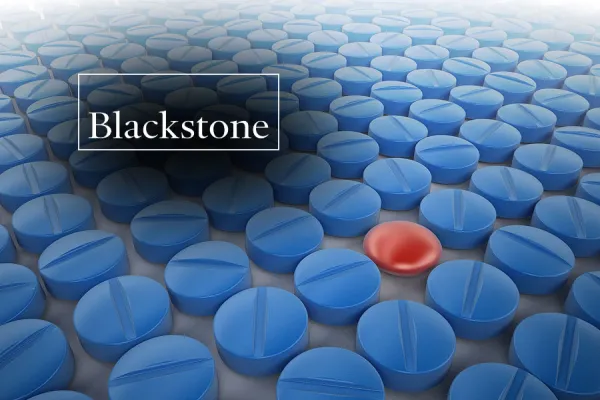In April, GSO and Blackstone’s Life Sciences division said they would provide up to $2 billion to Alnylam Pharmaceuticals to acquire drug royalties, develop new programs for the company, purchase common stock, and provide $750 million in financing from GSO. The transaction was one of the largest financings ever of a biotech company.
Dwight Scott, global head of GSO, said the deal originated with Nicholas Galakatos, global head of Blackstone Life Sciences, but ultimately evolved into a comprehensive deal that included GSO, Blackstone Alternative Asset Management, Blackstone’s Tactical Opportunities Fund.
“One of my core areas of focus for GSO over the last few years has been to establish tighter integration between liquid and private strategies and across Blackstone. In this quarter, we showed exactly why this has been valuable,” said Scott, speaking in his first interview since the Covid-19 crisis began.
In the first half of the year almost 40 percent of the private originations that the firm did were related in some form to the rest of Blackstone’s business. It’s easy to see how GSO would benefit from doing more with colleagues in private equity, real estate, or BAAM, the largest hedge fund business in the world. In the second quarter, assets under management in credit were up by about 6 percent to $129 billion, with inflows of $6.5 billion.
But Scott pointed out that the bulk of activity this year for the firm wasn’t in private deals, but in liquid credit markets that cratered in March and early April as economic activity shut down around the world.
Since March 1, GSO has traded $24 billion of leveraged loans and high yield bonds. Even after taking profits that is more than $4.5 billion of net investment during the period.
“We were buying securities, particularly loans and high yield when they were trading off indiscriminately,” Scott said. For example, GSO bought $475 million of loans and then repackaged them into a CLO, which was the first CLO executed after the market downturn. According to CreditFlux, GSO is now the largest CLO manager, with $32.9 billion across 61 CLOs.
[II Deep Dive: The Radical, Lucrative, and Controversial Company Hiding in Stephen Schwarzman’s Pocket]
The market crisis also gave GSO a chance to upgrade the loans in the portfolio. “With CLOs, we’ve used this volatility to strengthen our portfolio,” Scott said. “If we had spoken three months ago, I would have said a big concern is that the CLO market will be disrupted because of downgrades and defaults. Our portfolio looks very different at the end of the second quarter than it did then because we’ve traded out of names.”
Eighty-seven percent of the loan portfolio in the CLO business at the end of the quarter is trading above 90 cents on the dollar compared to 61 cents at the end of the first quarter, according to GSO.
GSO was also one of the anchor investors in Royal Caribbean’s debt financing and a big owner of Diebold. “We watched the debt trade up, and then we exited,” Scott said. “We were senior secured in companies that wouldn’t have to restructure. That’s very different from the global financial crisis, when we were buying a lot of junior debt and then restructuring the companies.”
GSO has been involved in a number of private financings since March, including providing a unitranche loan to Edifecs, a health care technology company. It also helped finance the take-private transaction of IMA S.p.A, an Italian machine manufacturing business. But Scott said he sees a much bigger pipeline for private deal-making now.
“In March and April, the public markets were disrupted so it was hard to put together private transactions,” he said. “Now private markets are starting to pick up. Opportunities in liquid aren’t long gone, but they are gone for the time being.”







